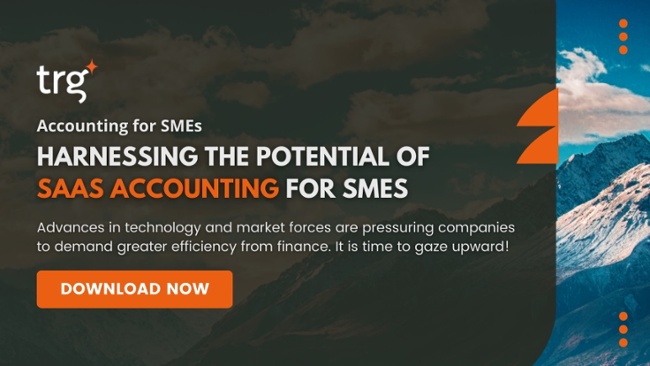In today's digital age, relying on manual and traditional methods of generating reports using on-premises financial management solutions can significantly hinder the efficiency of the finance department.
The processes are not only time-consuming but also increase the risk of data silos, leading to inefficiencies and delayed insights. Additionally, on-premises systems may lack scalability, pose security and data integrity risks, impede collaboration and accessibility, and incur substantial upfront costs and maintenance efforts.
Read more: Understanding the 6 Most Common Migration Strategies
Leveraging both automation and cloud-based solutions can bring businesses more than just real-time insights for top managers to make more timely and informed decisions. Automation with cloud-based solutions can be the key to business success in the business-as-unusual landscape of today.
Content
Challenges the C-suite faces when supervising financial reports with on-premise accounting software
4. Susceptible to compliance and security issues
Future-proof your business with cloud-based financial management solutions

Challenges the C-suite faces when supervising financial reports with on-premise accounting software
Traditional accounting systems, known as on-premises systems, involve installing the software on a local hardware server owned by the end user. These systems have limited access and can only be controlled by individuals within an organisation using desktop devices connected to an internal network where the accounting application is installed.
On-premise solutions typically store data in separate systems or databases, leading to data silos. This fragmentation makes it difficult to consolidate and integrate data from different sources, resulting in a fragmented view of the business and hindering accurate and comprehensive reporting.
Moreover, these solutions rely on manual data entry and processing, which can be time-consuming, error-prone, and inefficient. Manual processes increase the risk of data inaccuracies and hinder the timeliness of reporting.
Below are five additional issues typically associated with on-premise financial management solutions.
Read more: How SunSystems Cloud Powers the Accounting Needs of Oil and Gas Companies
1. Limited collaboration
On-premises accounting software is designed for accessibility through desktop devices in the company’s internal network, so it often lacks collaborative features, making it more difficult for C-suite managers to collaborate with their team members or other stakeholders when they are out of the office.
This can result in delays in reviewing and approving financial reports, as well as challenges in effectively communicating or making informed decisions.
Read more: Get Productive with These 7 Tips for Document Management
2. Limited scalability
On-premises accounting software is installed and hosted locally on the company’s own servers, which means that the software's performance and capacity depend on the company’s infrastructure.
When it comes to managing financial reports, scalability becomes crucial, as multiple users may need to access and review the reports simultaneously. However, many on-premises systems struggle to handle such concurrent access, leading to slower response times and potential system crashes.
Additionally, as the organisation grows and its financial data increases in volume, it is difficult for C-level managers to analyse the increasing amounts of financial information while still using these on-premises accounting systems. As a result, this can potentially lead to inefficiencies and delays in generating accurate reports.
Read more: Automating Reporting in the Financial Services Sector: a Case Study
3. Limited visibility
Unlike cloud-based software, on-premises accounting software requires manual data entry and updates, which is both time-consuming and error-prone. Consequently, obtaining real-time financial information can be a real challenge for finance functions as they rely on periodic updates and reconciliations.
Furthermore, outdated on-premises accounting software cannot seamlessly integrate with other business systems or third-party applications, such as CRM or inventory management software. Worse, they might no longer receive support and updates from vendors to keep the system current and meet the business's or industry's changing standards.
This leads to data consolidation and collaboration issues due to inconsistent, fragmented financial data, outdated reports, and a lack of a holistic and comprehensive view of the organisation's financial performance.
Such limitations can impede the C-suite’s ability to respond swiftly to market changes and make strategic choices that drive their businesses forward.
Read more: How to successfully adopt Accounts Payable automation
4. Susceptible to compliance and security issues
Specific industries, such as finance or healthcare, are bound to comply with government regulations on data management. Continuing to rely on outdated on-premises accounting solutions in today's rapidly evolving digital landscape can be a major hindrance for businesses striving to meet compliance requirements.
These legacy systems often lack the necessary flexibility and timely updates to keep up with the ever-changing landscape and regulations.
Moreover, the absence of essential security measures in on-premises accounting systems poses a significant risk to the company's valuable financial data. Without robust security protocols in place, these systems become more susceptible to data breaches, violations, and non-compliance with stringent data protection regulations.
Back to the top5. Data integrity issues
Data integrity is mainly concerned with how well data is stored throughout its life cycle. It is the practice of ensuring the completion, accuracy, and consistency of data entered into a system.
The heavy reliance on outdated on-premises accounting systems to handle businesses’ financial operations can expose them to potential data integrity issues. These issues can arise due to various factors, such as manual data entry errors, a lack of data validation checks, system malfunctions, or even malicious activities like data tampering.
Without timely and appropriate processes in place, there will be higher risks of duplication, loss, and inconsistency in data. Inaccurate or incomplete data can lead to faulty financial reports, incorrect calculations, and misinformed decision-making. This not only jeopardises the organisation's financial stability but also erodes its credibility among stakeholders.
Read more: Infor SunSystems Cloud – The future finance management solution
Future-proof your business with cloud-based financial management solutions
According to Fortune Business Insights, the market for cloud accounting software is anticipated to grow to over $416 million by 2024. Many growing companies today have prioritised software-as-a-service (SaaS) financial management solutions to empower their increasingly dispersed workforce.
These cloud-based solutions not only enable users to have access regardless of location but also regularly keep them updated with real-time data and provide them with more accurate and timely financial reports.
For example, Astra Life - an Indonesian insurance company, has upgraded its enterprise financial management solution to Infor SunSystems and adopted automation to increase reporting efficiency and velocity. As a result, they achieved impressive outcomes: a 75% reduction in reporting time and a 72% reduction in accounts payable transaction time.
More important, cloud-based accounting systems are built on open architectures, which means they can pull real-time, relevant data from other departments such as sales, marketing, human resources, and other sources into the financial system.
Besides, the flexibility of these solutions provides growing enterprises with easier scalability. This is especially beneficial for companies with multiple entities, such as franchises, which frequently need to add new locations and new staff at short notice.
By switching from an on-premises accounting system to a cloud-based one, you can free your business from rigid data structures and outdated operation processes, thus streamlining your accounting and reporting workflows.
However, choosing the most suitable solution can be a daunting task. To make the right choice, you need to carefully consider your company’s size, industry, budget, and available resources, along with other factors such as security requirements, integration of data, and your existing systems.
This will help you maximise your investments, accelerate your business, and secure its long-term success.
 English
English  Vietnamese
Vietnamese 


